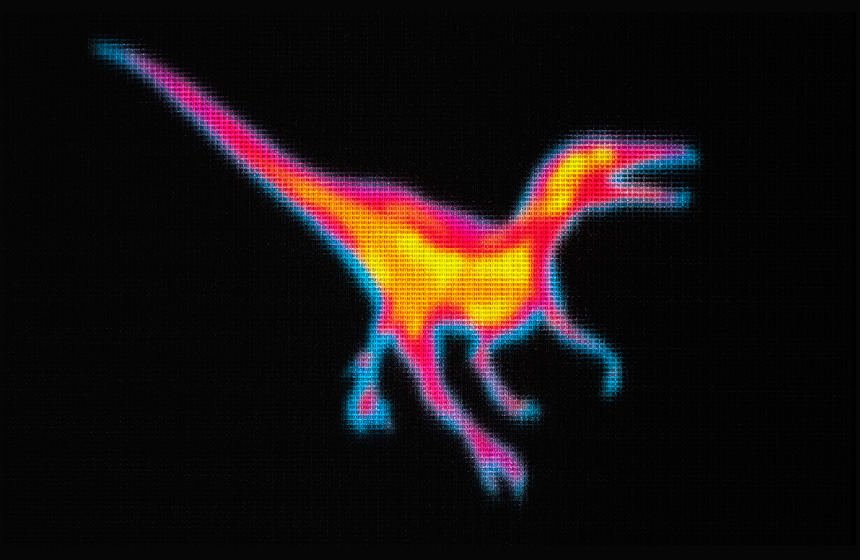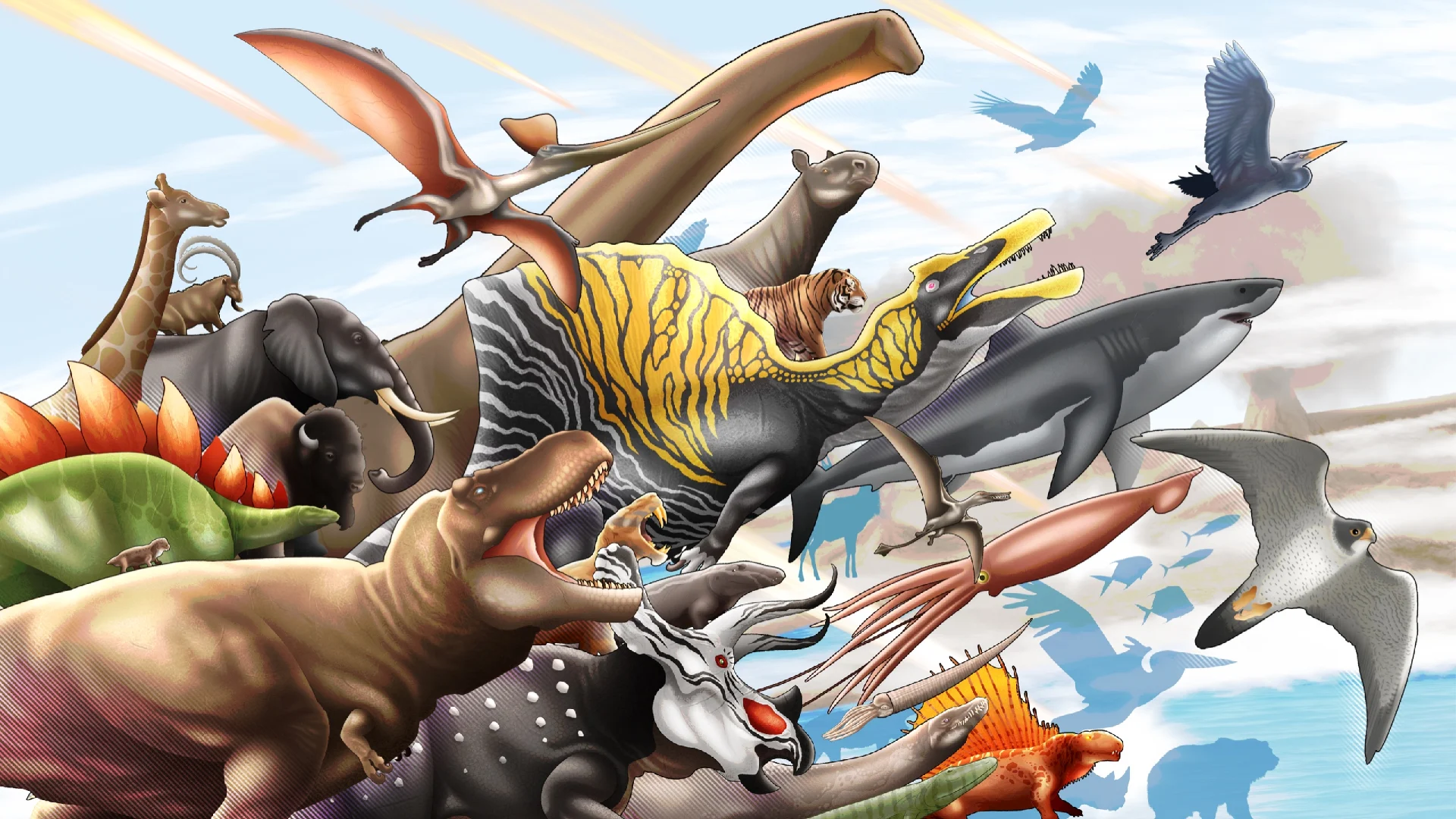Post by Infinity Blade on Jan 4, 2016 6:50:17 GMT 5
Could hippos be meat eaters?
People often think hippos are herbivores with big smiling faces. Every now and then, reports of a hippo of hunting down prey, eating a carcass, or stealing prey from a crocodile are heard, but they're typically considered 'aberrant' or 'unusual' behaviour.
Now, however, a collaboration among researchers from 4 continents demonstrates that carnivory, or eating meat, is not uncommon among hippos at all, and that this behaviour may increase their susceptibility to mass mortality during anthrax outbreaks. Hippos, elephants, buffalo or antelope are often affected by anthrax epidemics, but anthrax outbreaks among hippos exhibit certain unusual characteristics that could be explained by consumption of the carcasses of infected animals -- especially those of other hippos.
"The phenomenon of carnivory by hippos is crucial to an understanding of their susceptibility to this disease," said Joseph Dudley, co-author of the Mammal Review study.
"These reports fit the fact that hippos are the closest living relatives of whales, which are all carnivorous," added co-author Marcus Clauss.
Carnivory in the common hippopotamus Hippopotamus amphibius: implications for the ecology and epidemiology of anthrax in African landscapes
Joseph P. Dudley, Bernard Mudenda Hang'Ombe, Fabian H. Leendertz, Leejiah J. Dorward, Julio de Castro, Amanda L. Subalusky, Marcus Clauss
"1. The common hippopotamus Hippopotamus amphibius (‘hippo’) is a keystone species whose foraging activities and behaviour have profound effects on the structure and dynamics of terrestrial and aquatic ecosystems within its habitat.
2. Although hippos are typically regarded as obligate herbivores and short-grass grazing specialists, field studies have demonstrated that hippos are facultative carnivores that consume flesh and intestinal tissues from the carcasses of other animals. Carnivory by hippos is not an aberrant behaviour restricted to particular individuals in certain localities, but a behaviour pattern that occurs within populations distributed in most of the hippo's current range in eastern and southern Africa. Carnivory is frequently associated with communal feeding involving multiple individuals or entire social groups of hippos.
3. The observed tendency of hippos to feed on carcasses, including those of other hippos, has important implications for the ecology and epidemiology of anthrax and other ungulate-associated zoonotic diseases in African landscapes. Scavenging and carnivory by hippos may explain why the spatiotemporal patterns and dynamics of anthrax mortality among hippos often differ markedly from those of other anthrax-susceptible herbivores within the same habitats, and why levels of hippo mortality from anthrax may be orders of magnitude higher than those of other anthrax-susceptible ungulate populations within the same localities.
4. Recognition of the role of carnivory as a key factor in modulating the dynamics of mass anthrax outbreaks in hippos can provide a basis for improved understanding and management of the effects of anthrax outbreaks in hippo and human populations."
Link
People often think hippos are herbivores with big smiling faces. Every now and then, reports of a hippo of hunting down prey, eating a carcass, or stealing prey from a crocodile are heard, but they're typically considered 'aberrant' or 'unusual' behaviour.
Now, however, a collaboration among researchers from 4 continents demonstrates that carnivory, or eating meat, is not uncommon among hippos at all, and that this behaviour may increase their susceptibility to mass mortality during anthrax outbreaks. Hippos, elephants, buffalo or antelope are often affected by anthrax epidemics, but anthrax outbreaks among hippos exhibit certain unusual characteristics that could be explained by consumption of the carcasses of infected animals -- especially those of other hippos.
"The phenomenon of carnivory by hippos is crucial to an understanding of their susceptibility to this disease," said Joseph Dudley, co-author of the Mammal Review study.
"These reports fit the fact that hippos are the closest living relatives of whales, which are all carnivorous," added co-author Marcus Clauss.
Carnivory in the common hippopotamus Hippopotamus amphibius: implications for the ecology and epidemiology of anthrax in African landscapes
Joseph P. Dudley, Bernard Mudenda Hang'Ombe, Fabian H. Leendertz, Leejiah J. Dorward, Julio de Castro, Amanda L. Subalusky, Marcus Clauss
"1. The common hippopotamus Hippopotamus amphibius (‘hippo’) is a keystone species whose foraging activities and behaviour have profound effects on the structure and dynamics of terrestrial and aquatic ecosystems within its habitat.
2. Although hippos are typically regarded as obligate herbivores and short-grass grazing specialists, field studies have demonstrated that hippos are facultative carnivores that consume flesh and intestinal tissues from the carcasses of other animals. Carnivory by hippos is not an aberrant behaviour restricted to particular individuals in certain localities, but a behaviour pattern that occurs within populations distributed in most of the hippo's current range in eastern and southern Africa. Carnivory is frequently associated with communal feeding involving multiple individuals or entire social groups of hippos.
3. The observed tendency of hippos to feed on carcasses, including those of other hippos, has important implications for the ecology and epidemiology of anthrax and other ungulate-associated zoonotic diseases in African landscapes. Scavenging and carnivory by hippos may explain why the spatiotemporal patterns and dynamics of anthrax mortality among hippos often differ markedly from those of other anthrax-susceptible herbivores within the same habitats, and why levels of hippo mortality from anthrax may be orders of magnitude higher than those of other anthrax-susceptible ungulate populations within the same localities.
4. Recognition of the role of carnivory as a key factor in modulating the dynamics of mass anthrax outbreaks in hippos can provide a basis for improved understanding and management of the effects of anthrax outbreaks in hippo and human populations."
Link



